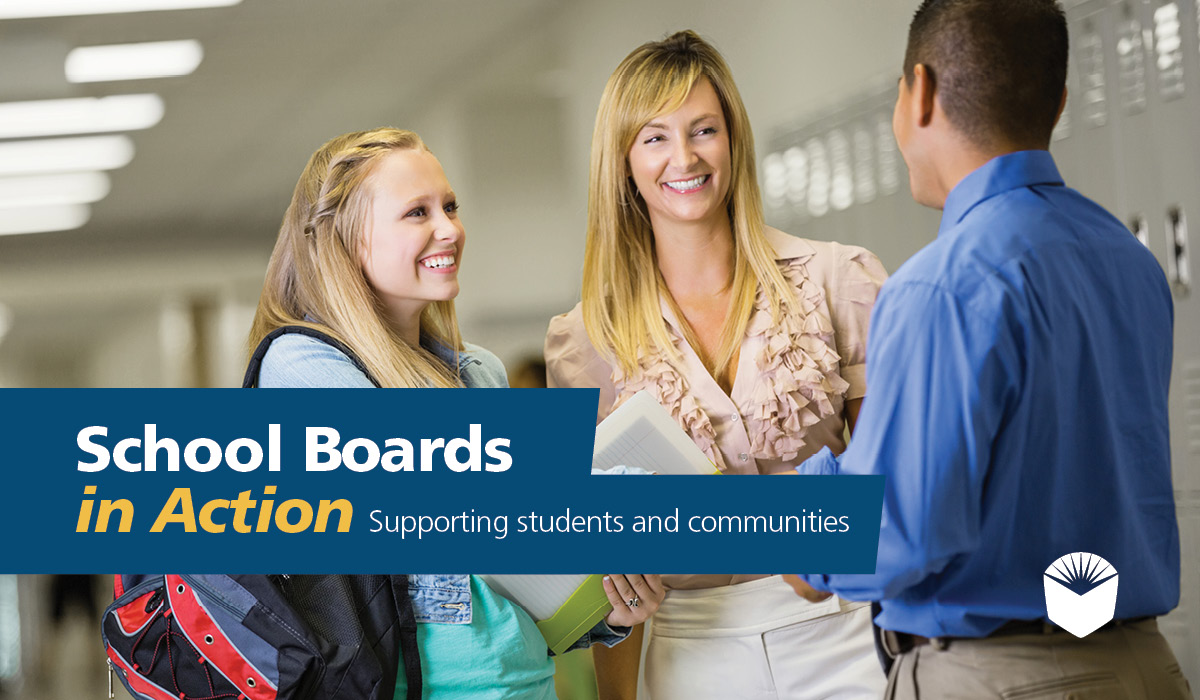In 1999, Sacramento County Office of Education Board President Bina Lefkovitz founded the nonprofit Youth Development Network and was co-director until 2010. Since then, she’s continued to promote equitable pathways that allow burgeoning student leaders from all walks of life to learn, grow and develop the qualities needed to spearhead the change they want to see.
This can be especially difficult for students served by county offices of education, which often provide direct instruction to a county’s most vulnerable student populations, including special education for severely disabled students, court and community schools for incarcerated and expelled youth, or programs for students with children.
Until the passage in October 2023 of Assembly Bill 275, boards were unable to pay a stipend to student board members — despite adult trustees receiving one themselves.
“That was totally not acceptable to us because we know our students need to work,” Lefkovitz said. “We get paid a stipend. Why would we treat young people who are giving up their time to do board service any differently? It doesn’t make sense to me, especially since a lot of them don’t have another job, this is going to be their job. I believe if we really want to create opportunity for all young people, not every young person has the luxury of just volunteering.”
AB 275 authorizes local educational agency governing boards to award a student board member elective course credit and/or financial compensation while serving as a trustee.
“CSBA supported AB 275 because it helped county boards of education remove barriers that prevented some students from serving on the governing board,” said CSBA Legislative Advocate Carlos Machado. “By authorizing compensation to student board members, the bill expanded the opportunity to serve many low-income students who support themselves or provide financial assistance to their family.”
CSBA also championed AB 417, which provided needed follow up to 2022 legislation that authorized county boards of education to select a student in a district school to fill a position on the county office board reserved for a pupil. In the absence of a petition for student representation, AB 417 permits a county board to appoint a student from a school directly under its jurisdiction to the position.
Providing new chances for young leaders
Despite recent legislative progress, the bills signed in 2023 by Gov. Gavin Newsom don’t fully capture the needs COEs have in regard to developing youth leadership roles, Lefkovitz said. “Our students have a lot of challenges in their life, and we want it to be able to go up at least to age 22 — our programs keep kids until they’re 22. I think the law still needs to be tweaked a bit for our students.”
Until then, Sacramento COE has appointed a 22-year-old woman who is an alumnus of a COE-run school to act as a paid “student fellow,” rather than a student board member, Lefkovitz said.
Prior to her starting, the board underwent an hour training around youth voice and the continuum of youth engagement, Lefkovitz said. Currently, a COE staff person is assigned to review the agenda with her before every board meeting and acts as a coach or mentor.
This former student attends board meetings and provides insights similar to that of a typical student trustee. She also works with youth advisory committees at each of the COE’s schools and is helping create a countywide youth advisory board that will be available to any student in the county, not just those attending schools operated by the county.
This workaround allows the board to include the perspective of a young person who better reflects the COE student body. “We serve a very specific type of student, so our board was committed to finding a student who recently graduated or who is in our schools right now,” Lefkovitz said.
This former student was seated in October so some of the kinks are still being worked out, she continued, noting that this liaison’s impact is already being felt as the board moves forward on various projects.
During her first meeting, for instance, staff presented on mentoring programs to help students in the county’s court and community schools. The student liaison spoke up for the inclusion of peer mentoring — an idea that garnered support among the board.
Creating a position on the board is the pinnacle of that level of leadership for students, but there also need to be steppingstones for all youth, Lefkovitz said, noting that “student leadership, unfortunately, tends to be your straight-A kids, and we need to figure out other ways to engage kids that are emerging leaders, but maybe aren’t in AP classes.
“Students bring a unique perspective because they’re living the experience, and adults, we tend to have memory loss once we grow out of the early adulthood stage,” she continued. “The world for kids today is different than the world I grew up in, certainly. And so, we have to make school relevant. We have to know what young people think and the benefit, I think, is that we are developing the next set of leaders — and that’s our responsibility.”





